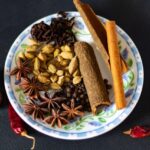Anxiety and depression are two of the most common mental health conditions, affecting millions of people worldwide. While there are many effective treatments available, some people prefer to use natural remedies, such as herbs.
Several herbs have been shown to have anxiolytic and antidepressant effects. Some of the most popular include:
- Lavender: Lavender is a calming herb that has been shown to reduce anxiety and improve sleep. It can be taken in capsule form, or used in aromatherapy.
- Chamomile: Chamomile is another calming herb that has been shown to reduce anxiety and promote relaxation. It can be taken in tea form, or used in aromatherapy.
- Lemon balm: Lemon balm is a member of the mint family that has been shown to reduce anxiety and improve mood. It can be taken in capsule form, or used in tea.
- Passionflower: Passionflower is a vine that has been shown to reduce anxiety and improve sleep. It can be taken in capsule form, or used in tea.
- St. John’s wort: St. John’s wort is a herb that has been shown to improve mood and reduce symptoms of depression. It is important to note that St. John’s wort can interact with a number of medications, so it is important to talk to your doctor before taking it.
It is important to note that herbs are not a cure for anxiety and depression, and they should not be used as a substitute for professional treatment. However, they can be a helpful addition to a treatment plan, and they may provide some relief from symptoms.
How to Choose the Best Herb for Anxiety and Depression

There are a few things to consider when choosing an herb for anxiety and depression:
- The severity of your symptoms: If you have mild anxiety or depression, you may be able to get relief from a simple herb, such as lavender or chamomile. However, if your symptoms are more severe, you may need to take a stronger herb, such as St. John’s wort.
- Your other medications: Some herbs can interact with certain medications, so it is important to talk to your doctor before taking any herbs if you are taking any medications.
- Your personal preferences: Some people prefer to take herbs in capsule form, while others prefer to use them in tea or aromatherapy. Choose a method that you find most convenient and enjoyable.
How to Use Herbs for Anxiety and Depression
There are a few different ways to use herbs for anxiety and depression:
- Capsules: Herbs can be taken in capsule form, which is a convenient and easy way to get your daily dose.
- Tea: Herbs can be steeped in hot water to make tea. This is a relaxing and enjoyable way to consume herbs.
- Aromatherapy: Herbs can be used in aromatherapy, which involves inhaling the essential oils of the herbs. This is a good way to get the benefits of herbs without having to ingest them.
It is important to start with a low dose of any herb and gradually increase the dose as needed. This will help you to avoid any side effects.
Which herbs give you energy?
Here are some herbs that give you energy:
- Ginseng: Ginseng is a root that has been used in traditional Chinese medicine for centuries to improve energy levels and stamina. Ginseng contains compounds that have been shown to reduce fatigue and improve physical and mental performance.
- Rhodiola rosea: Rhodiola rosea is a flowering plant that grows in cold climates. Rhodiola rosea has been shown to improve energy levels, reduce stress, and enhance cognitive function.
- Ashwagandha: Ashwagandha is a plant that has been used in Ayurvedic medicine for centuries to improve energy levels and vitality. Ashwagandha contains compounds that have been shown to reduce stress, improve sleep quality, and boost energy levels.
- Maca: Maca is a root vegetable that is native to Peru. Maca has been shown to improve energy levels, stamina, and sexual function. Maca contains compounds that have been shown to increase levels of testosterone, a hormone that is involved in energy production.
- Guarana: Guarana is a plant that is native to the Amazon rainforest. Guarana contains caffeine, a stimulant that can improve energy levels and alertness. Guarana also contains compounds that have been shown to improve cognitive function and mood.
These are just a few of the many herbs that can give you energy. If you are looking for a natural way to boost your energy levels, talk to your doctor about whether any of these herbs may be right for you.
It is important to note that some herbs can interact with medications, so it is important to talk to your doctor before taking any herbs, especially if you are taking any prescription medications.
What herbs are good for sleep?
Here are some herbs that are good for sleep:
- Chamomile: Chamomile is a daisy-like flower that has been used for centuries to promote relaxation and sleep. Chamomile contains compounds that have been shown to reduce anxiety and promote sleepiness.
- Lavender: Lavender is a flowering plant that is known for its calming effects. Lavender oil has been shown to reduce anxiety and improve sleep quality.
- Lemon balm: Lemon balm is a member of the mint family that has been shown to have anti-anxiety and antidepressant effects. Lemon balm contains compounds that have been shown to increase levels of GABA, a neurotransmitter that promotes relaxation.
- Passionflower: Passionflower is a vine that has been used for centuries to treat anxiety and insomnia. Passionflower contains compounds that have been shown to reduce anxiety and promote sleep.
- Valerian root: Valerian root is a flowering plant that has been used for centuries to treat insomnia. Valerian root contains compounds that have been shown to promote relaxation and sleep.
These are just a few of the many herbs that can help you sleep better. If you are looking for a natural way to improve your sleep quality, talk to your doctor about whether any of these herbs may be right for you.
It is important to note that some herbs can interact with medications, so it is important to talk to your doctor before taking any herbs, especially if you are taking any prescription medications.
Here are some additional tips for using herbs for sleep:
- Start by taking a small dose of the herb and gradually increase the dose as needed.
- Take the herb at least 30 minutes before bedtime.
- Avoid taking herbs with caffeine or alcohol, as these substances can interfere with sleep.
- If you are pregnant or breastfeeding, talk to your doctor before taking any herbs.
If you have trouble sleeping, it is important to see a doctor to rule out any underlying medical conditions that may be causing your insomnia.
Conclusion
Herbs can be a helpful natural remedy for anxiety and depression. However, it is important to talk to your doctor before taking any herbs, especially if you are taking any medications.




